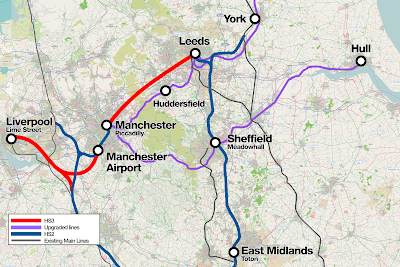 |
| Author Rich Tea Licence CC BY-SA 2.0 DEED Source Wikimedia Commons |
Nearly 10 years ago I wrote How to Bring or Defend a Small Intellectual Property Claim in the Intellectual Property Enterprise Court in NIPC London. I wrote it with litigants in person in mind though I thought it would also be useful to lawyers who do not specialize in intellectual property and patent and trade mark attorneys who do not litigate regularly in the civil courts. It was intended to supplement A Guide to Bringing and Defending a Small Claim by the Civil Justice Council and A Guide to the Patents County Court Small Claims Track which has been replaced by the Guide to the Intellectual Property Enterprise Court Small Claims Track ("the Guide").
Much of that article remains true though there have been a number of developments since then. The UK has left the European Union which means that IPEC is no longer a Community designs or EU trade mark court. Disputes over unregistered Community designs or EU trade marks that have arisen since 31 Dec 2020 are no longer within the IPEC Small Claims Track's jurisdiction. The Leeds District Registry and the District Registries of several other major cities have been integrated with the courts in the Rolls Building in London to establish the Business and Property Courts (see my article Launch of a Judicial Super Highway? 12 July 2017 IP Northwest). As a consequence of that integration it has been possible to bring certain types of small intellectual property claims in Leeds for most of the last 5 years (see Jane Lambert Small Claims Track IP Litigation in Leeds 10 July 2019). According to Annex A of the Guide small IP claims in Leeds come before District Judge Prest KC. Since 3 July 2023 most small IP claims litigation has been conducted in the North because Manchester Civil Justice Centre is now the new home of the IPEC Small Claims Track (see Jane Lambert IPEC Small Claims to be managed in Manchester 9 June 2023 IP Northwest).
The sections of How to Bring or Defend a Small Intellectual Property Claim in the Intellectual Property Enterprise Court that continue to apply are those headed "Do you need a Lawyer?" and "Have you got a Case?" In addition to the pro bono services listed in section 6 of the Guide, I would add IP Pro Bono which is now part of Lawworks, Advocate which was formerly known as "Bar Pro Bono" and my own "Initial Advice and Signposting" clinic which I run in conjunction with Barnsley Business Village.
It is still necessary for claimants to write a "letter before claim" unless there are very good reasons not to do so but the practice direction referred to in the section headed "Pre-Action Correspondence" has been revoked and replaced with the Practice Direction - Pre-Action Conduct and Protocols (see my article What to do about the new Practice Direction - Pre-Action Conduct 6 May 2015 NIPC Law). Guidance on the steps to be taken by parties to intellectual property disputes is no to be found in para 6 of the Practice Direction.
The first paragraph of the section headed "Starting the Claim" has to be modified since the Manchester Civil Justice Centre and not the Rolls Building is now the home of the IPEC Small Claims Track and a small IP claim can now be issued out of the Business and Property Courts in Birmingham, Bristol, Cardiff, Liverpool, Manchester and Newcastle as well as Leeds. If you want a case study of an IP case in one of those other cities, see Small Claims Track IP Litigation in Bristol 24 Feb 2022 NIPC Severn-Hafren.
I would repeat everything else I said in my previous article. Anyone who wishes to discuss this topic should call me during normal business hours on 020 7404 5252 or send me a message through my contact form.


